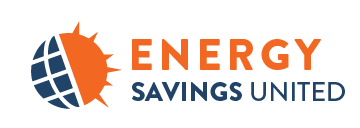Questions About Going Solar?
Going solar is a significant decision. It's natural you would want to have all your questions answered and to feel confident before making such a big decision. We've put together a small database of frequently asked questions and answers regarding solar panel installation.
Solar FAQ
How much can you save going solar?
Many homeowners want to use solar power to save money and help the environment. But, there are many things to think about before deciding if it’s right for you. Let’s talk about the important questions to ask yourself.
First, think about how much you pay for electricity now. In some places, people pay more than in others. If you pay a lot for electricity, you might save more money by using solar power.
Next, think about how much it will cost to put solar panels on your home. The cost depends on many things, like the size of your home, how much sun it gets, and if you want to buy or rent the panels.
Also, check if there are special deals or tax breaks for using solar power where you live. These can help lower the cost of going solar.
In short, using solar power can save money for many people. But you need to look at your own situation to see if it’s a good choice for you.
What solar panels are best for my home?
When it comes to efficiency, concentration photovoltaics (CPV) are great. They use mirrors to focus sunlight onto solar panels, making them work better. But, they’re expensive and harder to make because they need to follow the sun.
So, why do most people use silicon solar panels? There are three reasons:
- They’re cheaper to make: Silicon, the main part of these panels, is easy to find and doesn’t cost much. They’re also simpler to make than CPV panels.
- They last a long time: Silicon panels work well for up to 25 years if installed and maintained correctly. Even after that, they’ll still work at about 85% power.
- They do the job: Although not as efficient as CPV panels, silicon panels are still good enough. You can get more panels for less money, which makes up for the lower efficiency.
In the end, silicon solar panels are popular because they’re affordable, long-lasting, and work well enough for most people’s needs.
When is the breakeven point for solar panels?
Buying a home solar panel system is a big investment. So when do you start seeing the benefits? The key thing to know is that once your solar panels are paid off, they keep making energy for years without any extra cost.
There’s no one-size-fits-all answer to this question because many things affect how well solar energy works for you. But you can get a rough idea by looking at a few important factors.
First, think about how much it will cost to buy and install the solar panels. This depends on your home’s size, efficiency, and how much sun it gets. Next, find out if there are any special deals or tax breaks for using solar power where you live. Are there tax credits or ways to sell extra energy back to the power company? Knowing these things will help you figure out when your solar panels will start paying for themselves.
Finally, check how much you pay for electricity from the power company. This will help you see how much money you’re really saving by using solar power. If you need help figuring out when your solar panels will break even, talk to one of our experts today.
How many solar panels do I need?
There are many factors to consider when figuring out your specific needs for a solar power system. Generally, a homeowner needs about 30 solar panels to fully power their home. But the exact amount depends on where you live and the type of solar panels you choose.
The average American household uses around 11,000 kilowatt-hours of electricity per year, according to the U.S. Energy Information Administration. While some areas get more sunlight than others, a system with 30 250-watt panels should be enough to power an average home.
Keep in mind, this number can change depending on your home’s size, how much sun your panels get each day, and other things like how well-insulated your home is or if you have energy-efficient appliances.
Another thing to think about is the power of your solar panels. Nowadays, you can find panels that make up to 400 watts or even more. If you live somewhere with lots of sun, like Arizona, and use 400W panels, you might only need about 20 panels to power your whole house.
Are there any disadvantages to solar energy?
Solar energy has many great benefits, like helping the environment and saving money. And though there are few, there are some possible downsides too.
One problem is that not all places get a lot of direct sunlight every day. To make solar power, you need peak sun hours, which measure how long your panels can work at their best each day. Some areas get six or more peak sun hours daily. But other areas may only get three to four hours. If you live somewhere with less sunlight, you might want to think about whether solar is the best choice for you.
